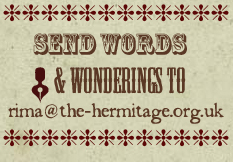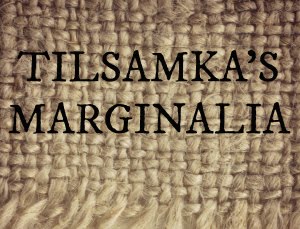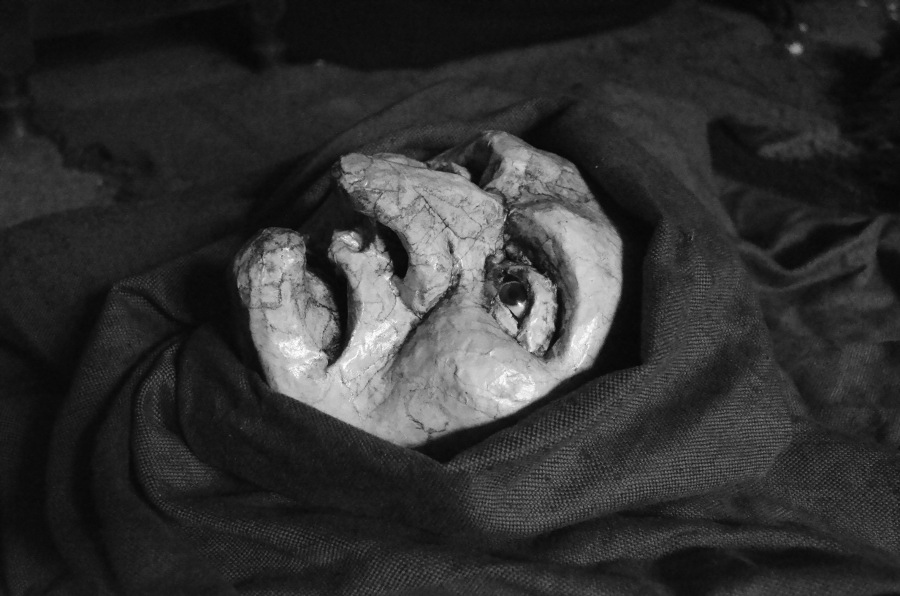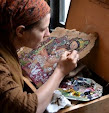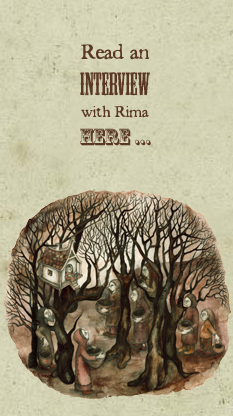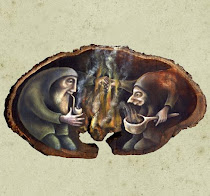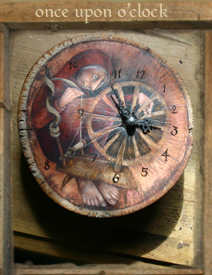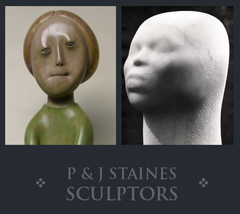Fær
THE OLD ENGLISH word above holds inside it many meanings. It is a
going, a journey, a way, a journeying, an expedition, a road, a
passing, a course, a march, a voyage, a path; it
is
a place where passage is possible, a thoroughfare, an entrance; it
is
that in which a journey or voyage is made - a vehicle, vessel,
carriage, ship, ark; it
is a
body of persons who journey, a crew; it
can also mean fear,
peril, danger, sudden, intense and
beautiful.
This
word can conjure others too if you look at it long enough: it could
be the just-out-of-sight otherworld of færy;
it
could be a gathering of festive merriments from afar – a
fair, or
the gift one would give to another at such an occasion – a
fairing (which
word also describes a part of the structure of a vessel of travel put
there in order to streamline its passage and reduce drag);
it
could be fear,
it could be far;
it could be for;
it
could be fair
– alluding to both beauty and justice.
We
see its bloodline in the word fare,
which is a merging of fær
and
Old English faru
– companions, baggage. Fare
can mean the
price required for passage,
or indeed food,
a meal, nourishment; its
old sense of travelling
and
being lives
on when we say farewell,
and
in words like seafaring and wayfaring.
For
some years I had the word wayfarer
on my business card alongside the other words which try to describe
in a small way what I am doing here on this earth. I've always liked
the word; it encompasses my love of nomadic dwellings and of
wandering the byways, but also for me it paints a suitably vague yet
accurate picture of the way we pass through life. All of us are
wayfarers.
[The
way
part
of the word is also Old English: from Old English
weg
- road,
path, course of travel,
from Proto-Germanic *wegaz (cf. Old Saxon, Dutch weg,
Old Icelandic, Old Norse vegr,
Old Frisian wei,
Old High German weg,
German Weg,
Gothic wigs
– way),
from Proto Indo-European *wegh- to
move. And, incidentally, ways
are timbers on which a ship is built, the sense stemming from the
older meaning of “channels in the body”.]
(~ information
gathered from the Chambers Dictionary of Etymology)
So
you can imagine how interested I was to hear that Penguin - as a
promotion for Robert McFarlane's book The Old Ways - were
running a competition to hire a wayfarer
to walk the tracks of Britain this summer and write about it along
the way. In another less busy incarnation I would have entered
myself, but was happy to follow the wayfarings of the person who did
win the competition with the submission of a short film and an essay.
Her
name was Sarah Thomas, and with her Wayfaring came this way many, if
not all, of those linguistic fær-scents
mentioned above, and a tale-thread that entails itself like a
blessing-knot on an old story-string that has hung by my side for a
long time.
You
see, our paths had crossed before, in many ways, though not yet in
this way. In past chapters of our lives, our tales had plaited their
yarns together, without our ever yet meeting.
But
to begin with I didn't know this. Sarah Thomas the wayfarer was just
Sarah Thomas the wayfarer – a traveller, film-maker, writer,
observer, whose beautiful words and images I read with delight and
interest as she went along. She walked northern paths in July and
left word on her blog, for followers to read. I invited her to stop
by for tea should her paths wend this far south, assuming they may
not.
But
the more I followed her words back in time, the more bells began to
ring in me. Clues amongst her earlier tales made me wonder. Places
and names and details all conspired in my mind to bring me to a
realisation that she was in fact a person I had known without
knowing: she and I had both, at different times, been with the same
partner.
This
was not a simple and straightforward realisation. For me that
relationship had been difficult, traumatic and deeply damaging. This
man who had been a part of both our lives had a kind of madness which
has caused far-reaching disturbance through my heart and psyche. In
those days, Sarah was an ex-girlfriend of his, with a different name,
someone I only knew of through his (not always rational)
descriptions, and whom I undoubtedly found intimidating.
Now,
by the side of Sarah Thomas The Wayfarer had stepped up another woman
with another name, and she stood there carrying many heavy bags of
memories, asking me to believe that they were one and the same
person.
I
wrote to her again, reiterating the invitation to tea, tenfold,
commenting that we may have a great deal to talk about! Sarah
wrote back, touched. It seemed we had crossed paths several times in
the days since our shared connection was long gone, but she had been
too shy to say hello (thanks to yet more inaccurate second-hand
descriptions and stories), and I had not known who she was.
Her
wayfaring brought her to Devon. And so we met by a river, and it was
like meeting someone I'd known for aeons without yet seeing her face.
We fell immediately to talking about thises and thats as the hours
threatened to eat up the daylight. We knew then, I think, that this
was a profound and incandescent connection which would birth
wayfarings of its own, and unleash a long-awaited healing.
Our
next days turned into weeks, with Sarah adventuring on Dartmoor
inbetween even further-reaching travels which took place inside our
conversations. This journey was not just on foot – the voyage was
made in a spirit-ship on old waters; it followed a barefoot earthen
path through the moonlit forests of our hearts, meted out in ashen
truth-stones; our map was hand-wrought on the skins of sorrowful
beasts; each of us had pegged out waymarkers for the other.
We
laughed a ridiculous amount, we cried. We walked and swam and sat and
danced, and most of all, we talked. It feels as if we've only barely
begun to form the first syllables of long long sentences, though we
have talked through many hours. There in this bowl we share rest many
beautiful things, not least among them is a trust born of I don't
know what, and the steps to thought-dances we thought we were alone
in learning.
In
the middle of these days, came the Uncivilisation Festival, and Sarah
came too, riding in the back of our van to the throng of fire and
rain and story. Tom and I have felt thoroughly blessed to have such a
lovely visitor, with whom we can share space without difficulty, and
jokes without censure. She is one of those people you meet very
occasionally in life from whom a familiar bloodfirelight shines, a
companion on the beautiful roads and the brambled.
It
is rare that I share my deeply personal stories here on this blog,
for reasons many and various, and, I hope, obvious. But this one
feels like it also belongs in part to all those who have suffered
silently in the cages of unwell relationships, as a reminder that
there is goodness and strength and renewed enchantment to be found
woven in the threads of this sisterhood-cloth which could so easily
have been lost. Also, it is a lovely tale.
Sarah's
wayfaring has taken her on from here for now, and before too long it
will bring her to her husband and home in Iceland, land of this old
language we speak, land of old story, land still crackling with
un-buried magic. One day, we will make our way north to meet again
there, and the wayfaring will go on, the road a yarn weaving together
pasts and presents and futures, hearts and places and arts and dreams
and people.
Once
a student of linguistics and languages, if I play too long with
words, I can find new threads to connect them...
wayfaring
= Old English wegfarende
way farende
wa farend
war frend
wær
(=
Old English
true) friend




